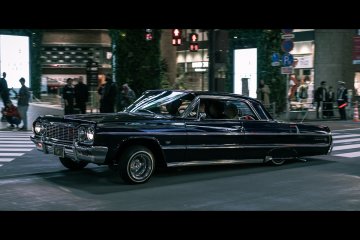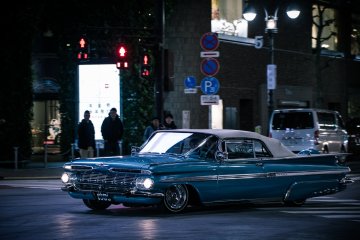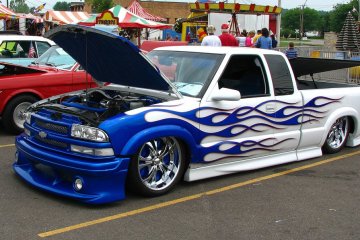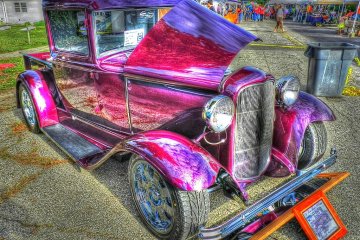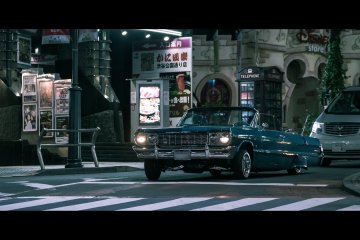To understand why Lowriding in Japan is such a fascination, you have to first understand its dramatic origin and how that contrasts with the typical culture throughout Japan. It all goes back to the fifties in southern California following the economic rise throughout the United States post WWII. Much of the car culture consisted of white Americans taking their cars and modifying their suspension to raise them from the ground and putting in the biggest engines they could. As a means of rebellion, Mexican Americans started doing the opposite. Taking their cars and ripping out the suspension, even putting concrete bags in the trunks to lower them to the point of dragging across the ground. They’d boast intricate paint jobs consisting of vibrant colors, detailed patterns, and candy texture. At some point, this staple of Chicano culture became less of a rebellious act and more of a form of art, one over time many would fall in love with.

From the sixties and onward, this new culture of “lowriders” would continue to develop into a staple image of LA’s Chicanos. It brought people together, creating families, communities, and places where people could belong and be themselves. Unfortunately, this culture was born in one of the most violent gang-associated areas of LA and, as a result, led to many believing lowrider culture was violent and troublesome. This image of “lowriders” culture was often wrong for most communities but, due to a few bad apples, there would always be those who stray away from this part of Chicano culture.

“Lowrider” culture and Chicano culture, in general, are very different from Japanese culture. When it comes to lowriders, it's all about expression, putting yourself out there for others to see through the car. At this point, there are no rules for lowriders, anything goes, and that is why it is always interesting to see how this unique culture has traveled so far and somehow found a place among the typically high constraints of Japan.
Like most things American in Japan, it started with an individual's fascination with something different from what they know. Lowriders gave the people of Japan's car communities something new and an outlet for self-expression. While lowrider culture started small here, it has slowly grown over the years, attracting those that find themselves less conformed to traditional ways of life in Japan.

From small groups to even dedicated shops for lowrider creation and modification, it is clear parts of Chicano culture have been infatuating some Japanese for a while. Over the last few decades, lowrider culture has become an integral part of many people's lives, leading to many different events related to the unique lowrider community and car communities as a whole.

Car communities have been a big part of Japanese underground culture for a long time, and with it being more widely excepted, it's gotten easier to find meet-ups across various regions of Japan. These meet-ups are where you can come across lowriders, and you may even find organized car shows where lowriders will be on display. For lowrider meet-ups in general, you may find them difficult to find as the community here is still growing, but you will likely have success looking for groups on social media. On there it's possible to find those in the community organizing weekend meets or looking for others to chat with.

If you happen to find yourself at one of these meets, you might be surprised that while the people there look and speak Japanese, they don’t always act to the traditional Japanese culture. Yet, this culture works for some in Japan; it allows them to be who they want to be in a place where they would otherwise be judged. Many have tattoos and piercings and will greet you with a fist pump or high five, very different from many other interactions you will have in Japan. These communities are welcoming to those who want to experience this unique culture. If you have the chance, check them out and enjoy the art that is lowriders.







